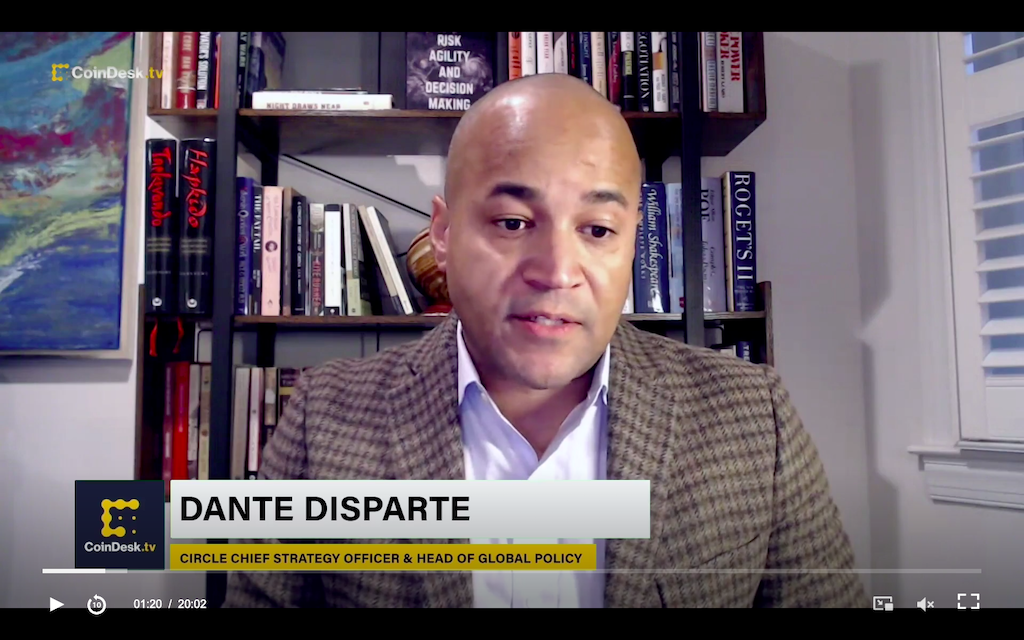U.S. Must At Least Be ‘Fast Followers’ On Digital Currency, Panel Hears
Panelists discussed the benefits of a digital currency backed by the Federal Reserve.

WASHINGTON, May 24, 2022 – Industry and a House representative pushed the benefits of a central bank digital currency on Thursday, arguing that the regulated coin would help reduce banking costs and bring those who otherwise don’t use banks into the financial system.
Rep. Jim Himes, D-Conn., told an event hosted by the Center for Strategies and International Studies, that the digital coin, backed by other currencies, would bring in people who don’t use the banking system, which are about 5.4 percent of American households, according to the Federal Deposit Insurance Corporation. Roughly three times as many more are “underbanked,” referring to those who engage in costly nonbank services such as check cashing, money orders, payday lenders and international remittance services, the data show.
Himes, who said the U.S. is late to the digital currency game, added that by enabling these Americans to access this new digital system, this would lower prices for remittances and foster financial inclusion.
Separately, high-powered law firm Skadden, Arps, Slate, Meagher and Flom explained in a recent memo that a CBDC could provide “safer, faster and cheaper payments.”
Dante Disparte, the chief strategy officer and head of global policy at digital financial services company Circle, said for countries that depend on foreign remittances, this is a pathway for accelerating currency receipts and increasing settlements.
Digital currency an international race
“We are seeing things we could not do with our money as compared to if our money stayed in physical or analog form,” said Disparte, adding on the international front, this is akin to the “space race.”
A panel at an event hosted by the Center for Strategic and International Studies said earlier this month that the U.S. was falling behind China, a technology powerhouse, on the digital currency front.
“We don’t need to win every technological race out there, but we need to at least be fast followers,” said Himes. “Let us not find ourselves left behind on the innovation this could provide.” Disparte agreed with Himes that the U.S. is late to the game, but added his caution to the Federal Reserve’s cautionary approach in April to develop a potential CBDC for the U.S.
“Better get it right than to get it first or fast,” Disparte said.
Himes said his ‘elevator pitch for a CBDC rests on the benefits the digital dollar provides for innovation. In the United States’ potential development of a CBDC, the framework or result will not satisfy everyone, but it will be a platform of innovation.
Disparte added that digital dollar currencies such as “blockchain and stable coin will change the world when people start to think of it less as a digital challenge to the dollar and to the U.S. banking system, but rather as foundational technology” for U.S. innovation.
Editor’s note: A prior version of this story referenced a report by the law firm of Skadden Arps and said that the report had argued that a CBDC would allow for “safer, faster and cheaper payments.” The article has been revised to clarify that the Skadden report was not mentioned at the CSIS event, and to note that the the firm explained that a CBDC could allow for such “safer, faster and cheaper payments.”








